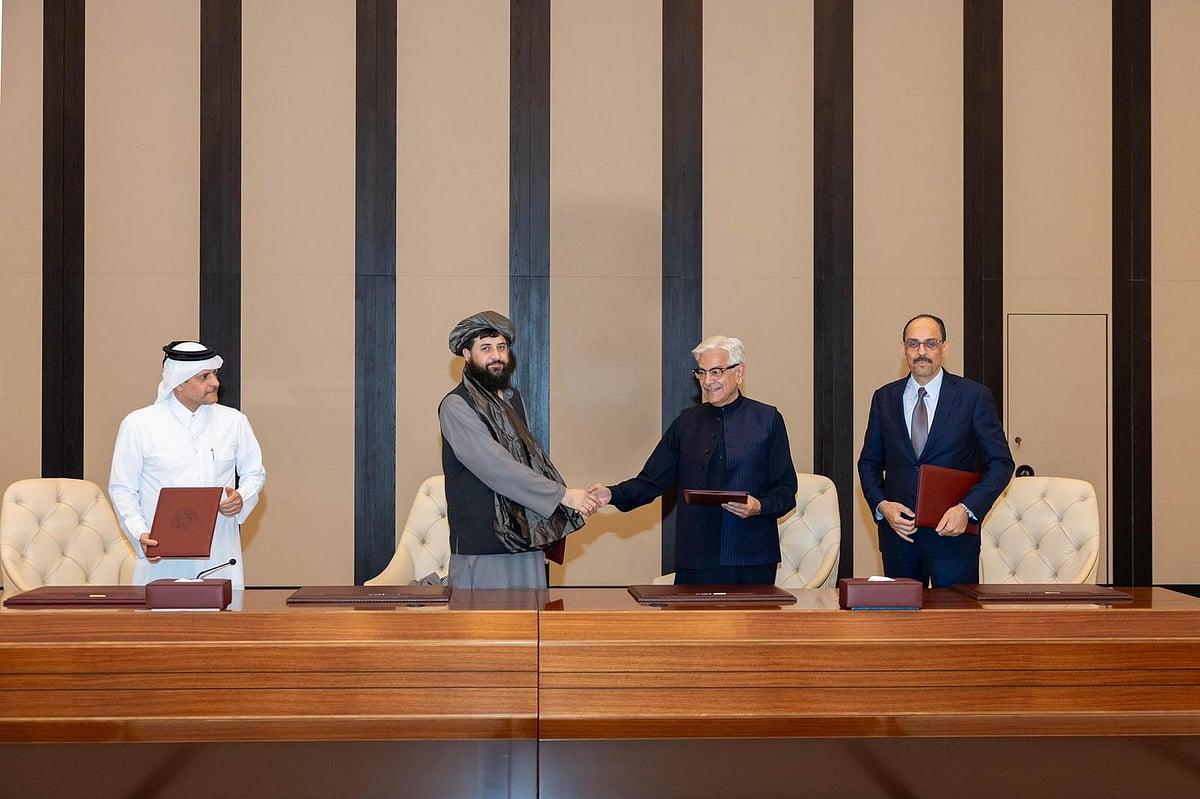Islamabad: Afghanistan and Pakistan have reached an agreement for an immediate ceasefire after more than a week of intense cross-border fighting that left dozens dead and hundreds injured, Qatar’s Foreign Ministry announced on Sunday, October 19.
The decision comes after high-level talks in Doha mediated by Qatar and Turkey, aimed at de-escalating the deadliest confrontation between the two neighbours in recent years.
Focus on Restoring Stability
According to a statement released by Qatar’s Foreign Ministry, delegations from both countries agreed to establish mechanisms to sustain peace and stability, with follow-up discussions planned in the coming days to ensure the ceasefire holds. Defence ministers from Islamabad and Kabul led their respective delegations. Pakistan said the talks were centred on “immediate measures to end cross-border terrorism emanating from Afghanistan and restore peace and stability along the border.”
Each government has accused the other of initiating hostilities. Afghanistan has denied Pakistan’s claims that it shelters militants involved in cross-border attacks. Regional actors, including Saudi Arabia and Qatar, have appealed for calm amid fears that continued hostilities could enable extremist groups such as Islamic State and al-Qaida to regain strength in the region.
Airstrikes and Civilian Deaths
Before the ceasefire announcement, Pakistani security officials confirmed to the Associated Press that air raids were conducted on two districts in Afghanistan’s eastern Paktika province, targeting hideouts of the Hafiz Gul Bahadur group. The officials, speaking anonymously, said the strikes were retaliation for a suicide bombing at a security compound in Mir Ali, Khyber Pakhtunkhwa.
While Pakistani officials maintained that the operation killed dozens of armed fighters without civilian casualties, Afghan authorities reported at least 10 civilian deaths, including women, children and local cricketers. The attacks prompted Afghanistan’s cricket board to boycott an upcoming series in Pakistan.
Funeral prayers for the victims drew thousands in Paktika, where Taliban spokesman Zabihullah Mujahid condemned the “repeated crimes of Pakistani forces” and accused Islamabad of violating Afghan sovereignty.
Pakistan’s army chief, Asim Munir, meanwhile, urged Kabul to prioritise “mutual security over perpetual violence,” calling on the Taliban to control armed proxies operating from its territory.





